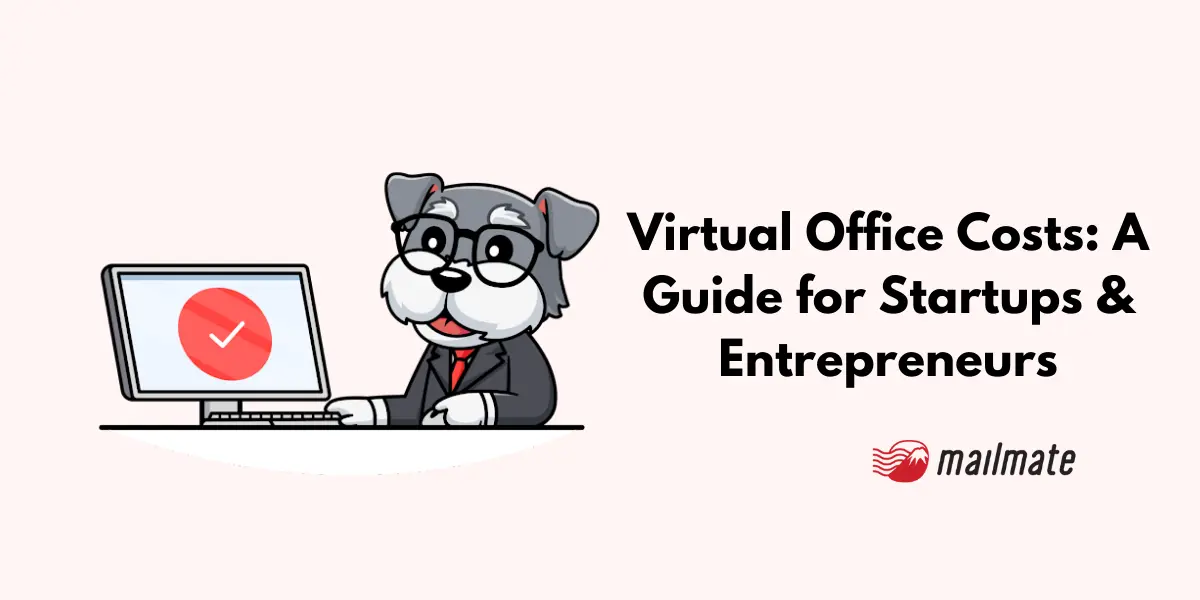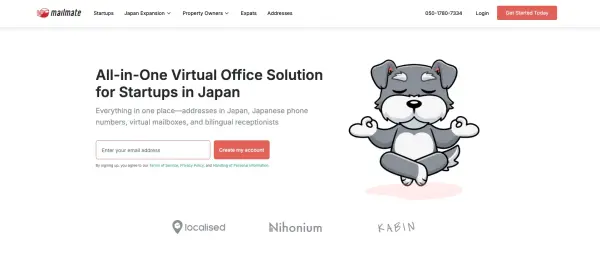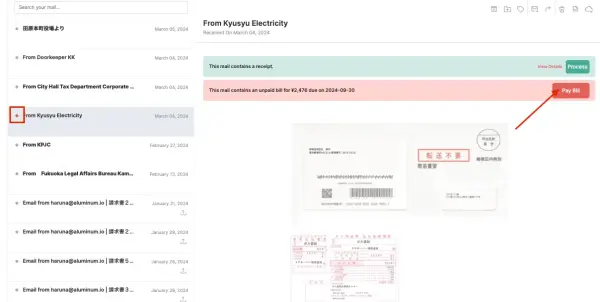Virtual Office Costs: A Guide for Startups & Entrepreneurs

Virtual office costs are an essential aspect for businesses to consider when looking to establish a professional presence without the overhead of a physical space.
Initial setup fees for a virtual office can range approximately from $150 to $200, with monthly fees for a basic plan generally falling between $50 and $100, allowing savings of up to $2,000 to $10,000.
Today we're digging into the savings and costs for startups and entrepreneurs when choosing a virtual office address over a physical address.
An overview of virtual office costs
When considering a virtual office, one should examine the specific cost factors and how these compare to traditional physical office spaces.
Costs associated with virtual offices can vary widely based on the services provided.
Typically, basic plans may start from as low as $40 to $100 per month for just the virtual office address, with prices escalating as additional services are included.
Factors influencing the cost include mail handling and mail forwarding, virtual mailbox software, receptionist services, phone answering, and access to physical office space when required.
Location also plays a pivotal role; for a prestigious business address, such as a virtual office in Fukuoka, one might expect higher costs.
Comparing virtual and physical office costs
A direct comparison between virtual and physical office costs reveals substantial differences.
Physical office space typically incurs higher overhead due to long-term leases, utilities, maintenance, and staffing.
On the other hand, a virtual office offers a cost-effective alternative, significantly reducing such expenses.
Office Type |
Pros |
Cons |
Average Prices |
Suitable For |
Private Office |
High security, flexibility, fully furnished, communal spaces |
Pricier short-term, limited changes, limited people |
¥65,000–¥300,000 /mo |
Startups, temporary satellite office |
Virtual Office |
Low cost, flexibility, privacy |
Need separate workspace, may face loan difficulties |
¥660–¥11,000 /mo |
Freelancers, startups |
Serviced Office |
Low short-term cost, professional reception, tenant networking |
Limited usage, slow internet, extra fees for registration |
From ¥24,900 /mo |
Businesses needing concierge experience |
Coworking Shared Space |
Low cost, networking opportunities, various seminars/events |
Vulnerable to eavesdropping, lack of seats, lack of control over environment |
¥10,000–¥50,000 /mo |
Wide variety of industries |
For instance, the average price for a private office based in Tokyo tops out at ¥300,000 per month. While a virtual office subscription fee tops out at ¥11,000 per month. That's a 2,600% reduction in costs simply by using virtual office services.
Costs associated with traditional office spaces and a physical business address include the following:
Utilities
Office cleaning
Office-related furniture and decor
Staffing for front desk
When looking at virtual office costs, it will include:
Virtual business address
Virtual office tools for a remote workspace infrastructure (Slack, Google Workspace, etc.)
Mail forwarding
Virtual office services such as MailMate covers these types of costs and more because it tailor towards startups and entrepreneurs wanting to start a business or open a branch in Japan. Your virtual office cost with MailMate will be signiatifally cheaper rather than renting a physical space in Japan. Plus, you can revest your money into your business with the extra amount you have.

While the field of virtual offices is relatively new, statistics are already showing significant savings by switching to a virtual office. For instance, IBM is reported to have saved $50 million through switching to flexible work arrangements and cutting down on real estate spending. Additionally, according to Global Workplace Analytics, employers can save an average of 10,000 per employee who works remote.
Costs for virtual office services
Choosing a virtual office involves deciding what kind of services and amenities are crucial for your business. Each service—whether it's mail handling, access to meeting rooms, or phone answering—comes with its own price tag.
The virtual office address cost will vary depending on the services you choose. So some will offer all these services, while others will be additionally add-on for each feature you want.
1. Mail handling and forwarding services
Mail handling and forwarding are fundamental services of a virtual office. And this service is often included in the monthly fee for a professional business address and the handling of postal mail.
Fees can increase with the addition of services like mail scanning and the ability to view your mail via an online dashboard. The cost for these services will vary depending on the provider and the specific amenities used throughout the month.
MailMate’s mail handling and forwarding are integral as a virtual office. With MailMate, your Japanese mail will be forwards to the virtual office address. It will be scanned for your online dashboard.

Then you can choose to open, forward, shred, or even pay your bills. MailMate can do all these actions whether you are in Japan or not. Don’t worry about needing to forward you mail to yourself. MailMate will store physical mail for a storage fee of ¥10 per mail after 90 days.
2. Meeting and conference room access
Some virtual office services will provide meeting and conference rooms, but this isn't true across the board.
If a conference room or workspace is a feature your business needs, look for virtual office packages that include this service.
For instance, Regus provides workspaces and private offices as well as virtual office services, starting from ¥16,900 to ¥111,500 per person per month. Whereas MailMate is primarily a virtual office provider and does not provide workspaces, so prices are sgnidically less starting from ¥9,800 per month.
3. Virtual receptionists and live answering service
Phone answering services provide businesses with a dedicated business phone number and a virtual receptionist to handle calls.
A basic plan might cover just the phone answering, while more comprehensive plans can include a wide array of administrative services, with prices varying accordingly.
Providers may offer tiered pricing, charging more for additional features like bilingual support or personalized answering scripts.
The monthly cost of a virtual receptionist often includes a one-time setup fee, and then a block of 30 minutes or so, with charges for additional minutes used.
Overall, however, expect to pay a fraction of what you would need to pay for a fulltime receptionist.
4. Virtual office address for company incorporation
One of the primary things that small businesses pay for when using a virtual office service is a virtual office address that they can use for company registration.
While many virtual offices may or may not provide phone services or virtual mailbox software, they will all provide addresses that can be used as your business's mailing address.
The cost of a virtual address that you can use for legal purposes ranges between $50 and $100.
Costs for virtual office monthly or annual plans
Virtual office membership plans are designed to meet the diverse needs of small businesses and corporations by offering flexible rate options and service packages.
a. Monthly and annual rate plans
Members can generally choose between monthly and annual billing cycles for a virtual office plan.
Monthly rates allow businesses the flexibility to adjust or cancel services with minimal commitment. For instance, you might find plans starting from $50 to $100 per month for basic services which can include a professional business address and mail handling services.
Conversely, annual plans often come at a reduced overall cost due to a longer commitment period.
b. Customization of service packages
Each virtual office package typically begins with a standard offering which can include use of a business address, mail handling, and receptionist services.
Beyond this, customization options are available which can influence the monthly fee. Additional services may encompass phone answering, conference room access, and administrative support.
What are the saving advantages for entrepreneurs and startups?
Entrepreneurs and startups often operate with scarce resources, making it crucial to economize effectively. Virtual offices offer a path to achieve this, streamlining expenditures while maintaining a professional image.
A key advantage of a virtual office is the speed at which entrepreneurs can establish a professional presence. Without the delays of setting up a physical space, they can quickly obtain a prestigious virtual address and access essential services like call answering and mail handling.
This swift setup enables entrepreneurs to present a polished image instantly, which is often critical in early stages when creating trust with potential clients, investors, and partners. Moreover, the cost-effective nature of a virtual office means that even startups operating on tight budgets can afford this professional polish.
When considering the financial benefits of virtual offices, it's also essential to recognize the advantages of outsourcing specialized services. For instance, partnering with experts like OpSourced for managed DevOps or DevSecOps can significantly reduce the costs associated with managing complex IT infrastructures. By leveraging their DevOps and cloud management expertise, businesses can focus on core operations while ensuring their technological needs are efficiently handled.
Frequently asked questions
How much does a virtual office cost per month?
The average virtual office subscription will cost between $50 to $100 per month.
How much does it cost to run a virtual office?
The running costs for a virtual office would include the fees you pay in order to maintain your virtual office address, a virtual receptionist service (if you're using one), and other software subscriptions that enable remote collaboration, such as Slack, Google Workspace, and Zoom. With that in mind, the running cost for a virtual office is between $150 to $200 per month.
In closing
Startups typically face major financial challenges, but virtual offices significantly reduce initial investment requirements.
Entrepreneurs can avoid the high costs associated with leasing physical office space, including rent, utilities, and office equipment expenses.
Adopting a virtual business address and virtual office office space not only minimizes these expenses but also eliminates long-term lease commitments, allowing startups to allocate their funds more strategically towards growth and development.
Spending too long figuring out your Japanese mail?
Virtual mail + translation services start at 3800 per month. 30-day money-back guarantee.

